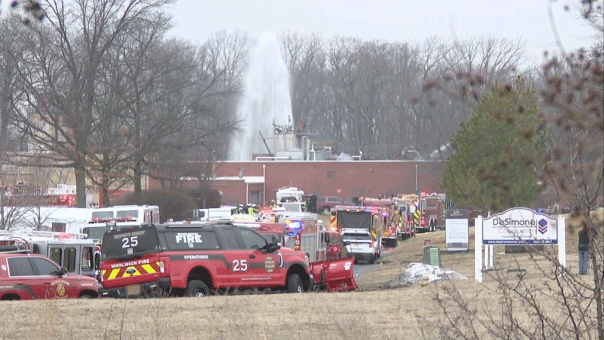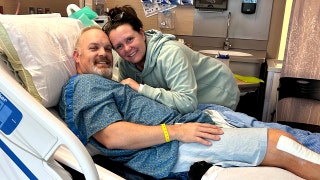WASHINGTON – An American-Bangladeshi writer who survived a machete attack by Muslim extremists that killed her husband raised alarm Tuesday about rising intimidation and violence against freedom of expression in the South Asian country.
Rafida Bonya Ahmed starkly described a sequence of gruesome assaults on secular bloggers, writers and publishers that have left five dead and others wounded in the past nine months. She and her husband — Avijit Roy, a prominent critic of religious extremism — were the first victims, set upon in a crowded Dhaka street in February. They were left bleeding in the street for an hour before they were taken to a hospital.
"The situation is dire. These bloody days are becoming a norm, and hacking people with voices is becoming a monthly chore for Islamic terrorists," Ahmed told a briefing organized by the Tom Lantos Human Rights Commission on Capitol Hill. "Because these killers were never brought to justice, now they are attacking foreign workers and even other Muslims from a different sect," she said.
In addition to the assaults on writers, violence against minority Shiite Muslims and death threats against Christian priests have raised the specter of deadly sectarian violence in the mostly Sunni Muslim country, which has traditions of secularism and religious tolerance. Critics charge that the government of Prime Minister Sheikh Hasina has failed to protect those under threat and is squelching dissent.
Ahmed, who is U.S.-based, suffered four head wounds and lost her left thumb in the Feb. 26 attack. She said the government initially avoided comment on that attacks but later admonished bloggers to be careful about what they write about religion — and in some cases, encouraged them to leave the country. She said she has had no contact from Bangladeshi authorities since she was attacked.
"They are refusing to accept the existence of rising Islamic terrorism in the country because of political reasons," she said of the government, contending it did not want to upset its alliance with religious groups.
Karin Deutsch Karlekar, a free speech advocate at the PEN American Center, said extremist groups last year published a "hit list" of 84 bloggers and have also targeted journalists and civil society activists, but police and authorities have offered them little or no protection. She said dozens of bloggers are in hiding or trying to flee the country "in order to stay alive."
The government has blamed the attacks on domestic Islamist militants and political parties — specifically the main opposition Bangladesh Nationalist Party and its main Islamist ally, Jamaat-e-Islami — for orchestrating the violence to destabilize the impoverished nation.
Mahbub Hassan Saleh, deputy chief of mission at the Bangladesh Embassy in Washington, accused the political opposition of killing dozens of civilians by throwing petrol bombs during street protests, which he characterized as terrorism. He did not directly address allegations that the government was failing to protect writers.
Rep. Jim McGovern, co-chair of the Lantos commission, said reports that trans-national terror networks like the Islamic State and al-Qaida are now present in Bangladesh would put growing pressure on stability and democracy in that country. McGovern, D-Mass., said democracy remains the best option for managing its diverse society. He urged the government to uphold its obligations to defend the rights of all its citizens.
Ahmed called on the U.S. to urge the Bangladesh government to abolish its vaguely worded Information and Communication and Technology Act, which makes criticism of religion on the Internet punishable with up to 14 years of imprisonment. She said several bloggers and journalists have been arrested under the act for hurting religious feelings in their writings.









































